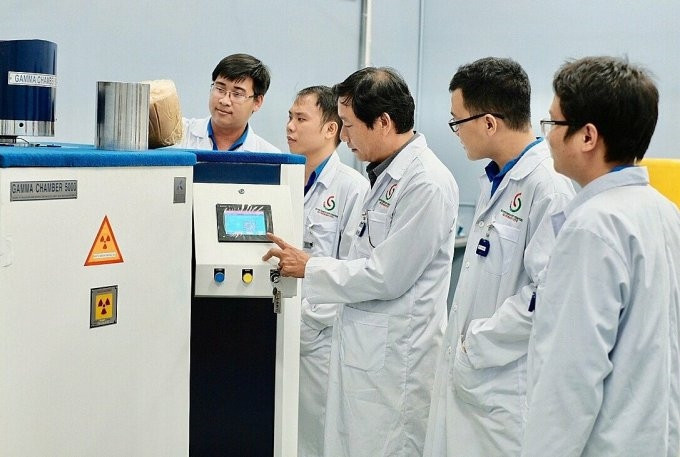
Prof Nguyen Duc Khuong, managing director of EMLV Business School, and president of AVSE (Association of Vietnamese Scientists and Experts) Global, talked to VietNamNet about how to attract and use talent.
Attracting talent is a hot topic of recent discussions. What do you think should we need to approach the issue?
Resources, especially human resources, for development is always a great challenge for all countries.
First of all, attracting talent means Vietnamese talent in Vietnam and overseas. It also means attracting foreign talent who have deep knowledge and can undertake mobile jobs. The foreigners tend to pay attention to dynamic destinations with high growth rates. They are well trained at foreign education establishments, so why don’t we think of exploiting valuable human resources?
In addition to improving the living environment, working conditions and access to healthcare and education services, we can use ‘connectors’ who are Vietnamese in Vietnam and overseas and have big influence in different fields.
China, Israel, Singapore and South Korea are the most obvious proof of this approach. Chinese people all over the world have been bringing money, FDI (foreign direct investment), technology and knowledge to China in the last 20-30 years.
I heard a story about how South Koreans connect with Korean-born leaders, experts and businesspeople all over the globe. A UN report showed that of the 6 million people living and working in Singapore in 2023, 38.4 percent were foreign nationalities, including many high-ranking experts.
Do you think that it is too late for Vietnam to follow this approach, especially the places you have mentioned, such as Singapore or Dubai?
It is true that we should have been doing this for at least the last 20 years. It is necessary to build pioneering policies, hard and soft infrastructure.
Singapore attracts talent with outstanding infrastructure and limitless opportunities. The country invites talented people, including foreigners, to hold important positions in the government, except for certain policies.
Meanwhile, Dubai offers high salaries and attractive tax policies. A friend of mine from Europe is now in Dubai and his salary doubled after two years of working, and he doesn’t have to pay income tax.
However, Vietnam still can do something to attract talents, such as creating opportunities to try new ideas. Vietnamese people will return to the homeland, while foreigners will come for new experiences. HCM City, for example, has great advantages that not all cities in the world have.
Do you mean that we just need to focus on attracting talent from the world and there is no need to spend money on domestic training?
No, I don’t. Attracting foreign resources will help create the development of internal strengths. Some analysts call this standing on giants’ shoulders.
Using internal resources is extremely important and strategic for development. We have to stand on our feet. Vietnam needs to produce leading specialists and scientists of its own so as to satisfy the country’s demand for development.
Approaching and meeting international standards in education must be a top priority. If Vietnam doesn’t have scientific and technological foundation, it won’t be able to absorb the intellectual elite of mankind.
Which academic majors should Vietnam need to focus on?
Nowadays, AI, microchip, blockchain, cloud computing and digitization are discussed everywhere. Vietnam is also following these trends.
It is also necessary to attach much importance to majors which are important in all development periods, such as healthcare, education and basic sciences.
Vietnam can fill gaps in the labor market with the blue ocean strategy: develop important expert pools that the world needs. For example, the world comes to Taiwan to learn how to make chips.
Do you have any suggestions about the strategies Vietnam should follow?
Vietnam’s attractiveness mostly comes from investment opportunities and growth potential. A rich culture, open-hearted people and strong entrepreneurship are also important. We need a comprehensive consistent strategy which is applauded by involved parties, from the government to businesses to experts.
The main spirit is building a favorable working environment where scientists, experts and technology developers can promote their strengths to solve challenges in socio-economic development. The second is using talented people in an effective way.
Thai An